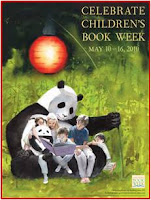 Literacy programs teach an older generation how to read and write
TampaBay.com: May 26,2010 by Lane DeGregory
Literacy programs teach an older generation how to read and write
TampaBay.com: May 26,2010 by Lane DeGregory
The conference room at the Pinellas Park Library is big and empty. The table is long. But the two women sit shoulder-to-shoulder, their heads nearly touching, each holding the edge of the same worn workbook. Ann Palmer, the woman on the left, slowly draws her polished fingernail beneath each word. Linda Barrett, the woman on the right, blinks behind her wire-rimmed bifocals. "The plants at the for … the for-est … the forest!" Linda reads. "Wow!" "Very good," Ann nods. "Keep going." "The plants at the forest floor are about a me … a me-ter high." Linda stops and looks at Ann, puzzled. "What's a me-ter?" For three years now, every Wednesday, for an hour-and-a-half, the women have been working together at the library. They're almost the same age, both mothers, both love the library. Though Linda used to hate it.
Linda, 58, used to live with her mom because she couldn't write a grocery list, couldn't dial 911, couldn't read.
Ann taught Linda how to hold a pencil so it wouldn't hurt her left hand, how to tell a B from a D by using her fists, how to write letters. Not just her name. All of them.
6 6 6 6 6 6 6
For a long time, for 30 years, Linda says, it didn't matter. If you don't know what it means to read, if you don't know what you're missing, how can you care?
You pick up little tricks to fool people, to adapt: Study the first letter of street signs, learn PAR- means it's okay to park. In restaurants, when the menus don't have pictures, just order a hamburger. Even recipes sometimes have symbols, especially on the side of box mixes.
6 6 6 6 6 6 6
Across America, an estimated 40 million adults have "below basic" literacy skills. The biggest group, according to the 2003 National Assessment of Adult Literacy, is people age 65 and older.
These are folks who can't decipher a bus schedule or fill out an insurance form, who can't pay a bill or use a map or read a prescription.
6 6 6 6 6 6 6
In Pinellas County, Ann says, about 20 percent of adults are "below basic" readers. Her volunteer group, which started in 1968, gets students who have been referred from employers, social service agencies, homeless shelters. Volunteers teach reading and writing through the Laubach literacy program, a phonetic-based method pioneered in the Philippines during the 1930s.
6 6 6 6 6 6 6
Linda's goals are simple: To read stories to her granddaughter. To figure out the TV listings so she won't miss her nature shows. To bake brownies that actually taste good. And she wants to know. "You know," she says. "Just know." READ MORE !
 UNESCO International Literacy Prizes
UNESCO International Literacy Prizes












